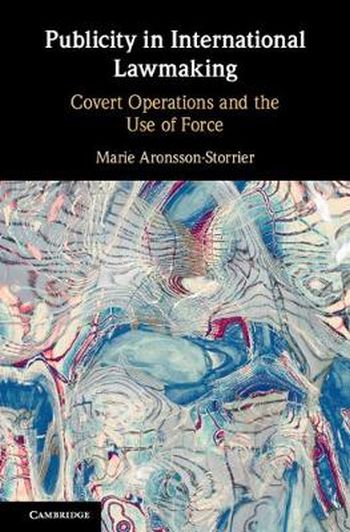
This book explores how best to recalibrate our understanding of international lawmaking through the lens of increased reporting and legal debate around covert and quasi-covert uses of force. Recent changes in practice and communication call for closer attention to be paid to the requirement of publicity for state practice, since they challenge the perception of the concepts 'public' and 'covert', and thus raise questions as to the impact that covert and quasi-covert acts do and should have on the development of international law. It is argued that, in order to qualify as such practice, acts must be both publicly known and acknowledged. The book further examines how state silence around covert and quasi-covert operations has opened up significant space for legal scholars and other experts to influence the development of international law.